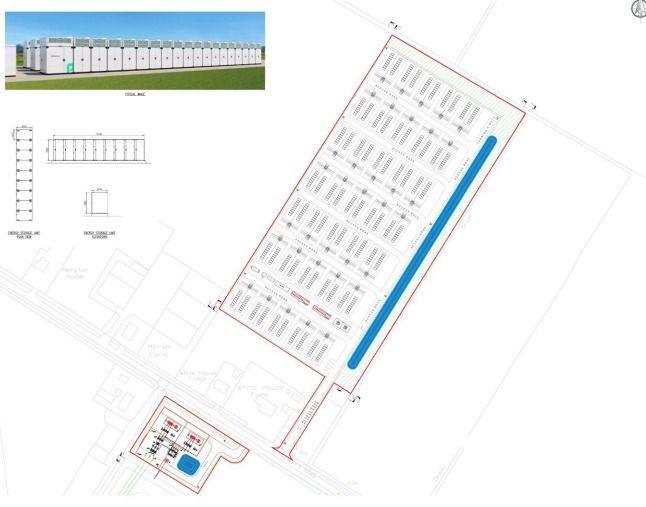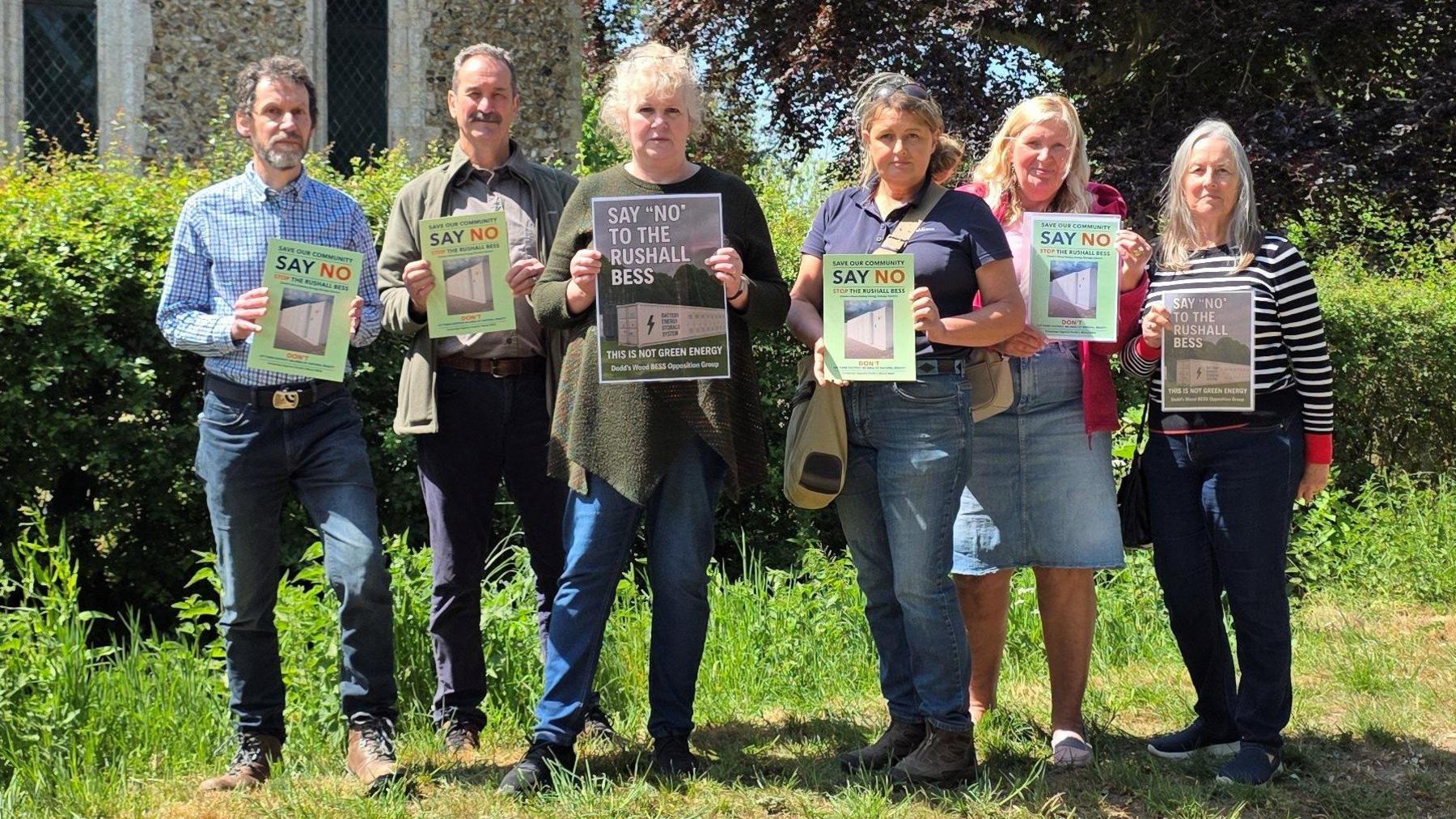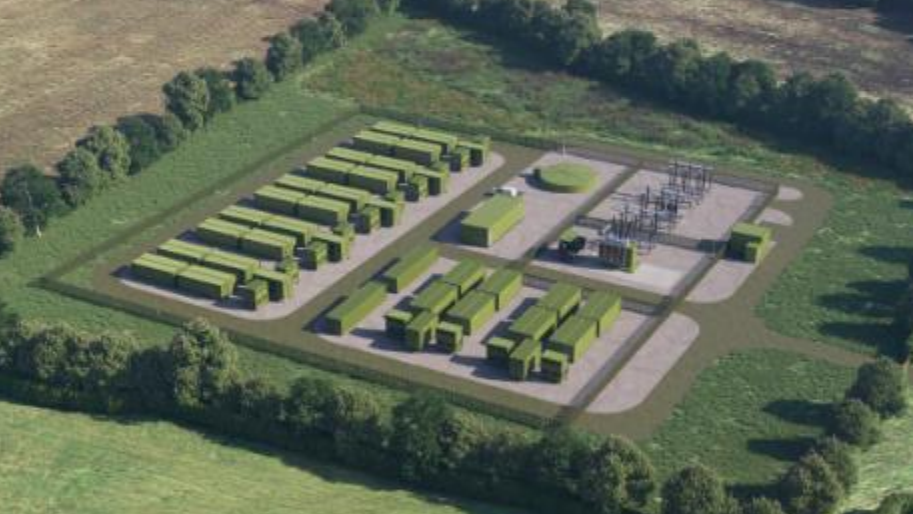Mega battery energy storage facility approved

Battery units are used to store electricity until it is needed by the National Grid (stock image)
- Published
A 200-megawatt battery facility has been approved after council officials decided the scheme's national benefits outweighed local concerns.
The four-hectare complex, seen as a vital part of the UK's net zero ambitions, will see 612 batteries, each 3m tall, installed on farmland near the village of Walpole, west Norfolk.
The scheme, covering an area of up to eight football pitches, has already generated strong opposition in the surrounding area.
It will store energy generated by intermittent renewable sources, including solar farms, which are planned for the region, to provide back-up capacity for the National Grid.
Council officers presented a document to councillors which argued that while the loss of agricultural land was recognised, considerable weight should be attached to the benefits of the battery energy storage system.
The government has pledged to hit net zero targets by 2050.

Approval was given for 68 electricity batteries to be based on the grade two agricultural land in Walpole
According to the Local Democracy Reporting Service, councillors expressed their frustration about national policies which they said left them little room to block the project.
Vivienne Spikings, Conservative, said the planning committee was "hamstrung", adding: "If we refuse it, it goes to the National Grid – rubber stamp.
"We can make suggestions, objections, reasons, but we're whistling in the wind and it is rather self defeating."
Walpole Parish Council and various locals had submitted objections to the plans, raising concerns about the loss of high-grade agricultural land, noise and safety risks regarding battery fires.
Richard Blunt, who represents the Walpole ward, said he did not oppose the energy storage facilities but believed the current scheme was "in the wrong place".
A case officer said the proximity to the existing Walpole substation made the site technically suitable.
The site – which will host 68 rows of batteries – is within 50m (164ft) of two properties and adjacent to the Walpole National Grid substation.
Developers have pledged to install a 3.5m (11.5 ft) acoustic timber fence to try and contain the sound levels.
Under the permission, the site will operate for 30 years by the applicant, STP Green Limited, before being decommissioned and restored to farmland.
All statutory consultees, including the Environment Agency and Norfolk Fire and Rescue Service, raised no objections subject to conditions on flood protection, noise and traffic management.
Councillors on the planning committee voted 10 to two in favour of the plan, with one abstention.
Get in touch
Do you have a story suggestion for Norfolk?
Follow Norfolk news on BBC Sounds, Facebook, external, Instagram, external and X, external.
- Published23 May

- Published12 September

- Published7 July
